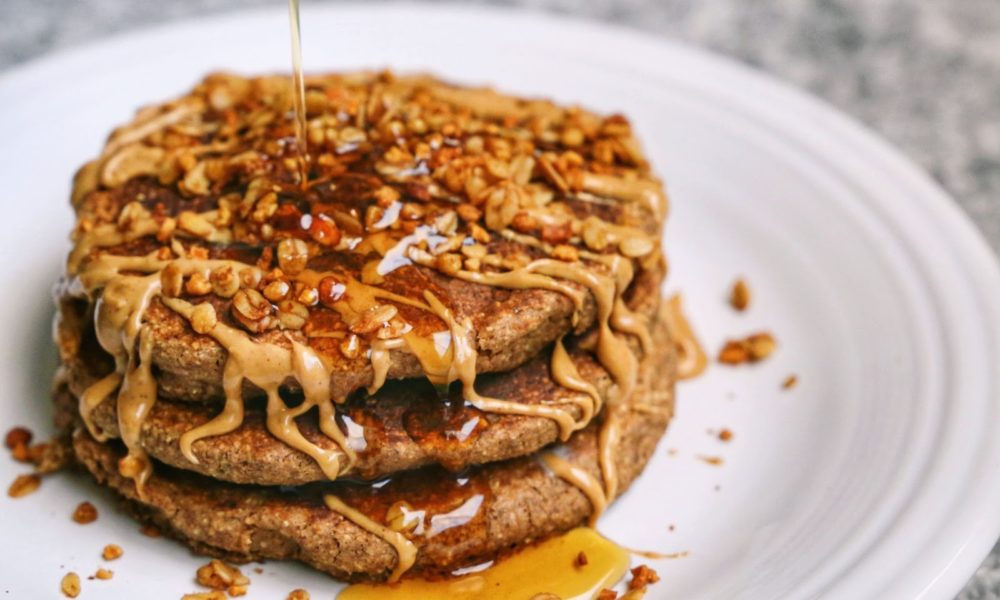

Protein powders, energy bars, vitamins, and supplements help with bodybuilding. However, athletes and bodybuilders must not forget to eat real foods. Some foods help attain body fitness. Nuts usually processed into nut-butters are excellent food options for bodybuilding.
There is the common misconception that peanut butter is fatty, will cause one to gain weight, and, therefore, a bad food choice for bodybuilders. While peanut butter contains many calories, it can be quite beneficial for your bodybuilding and fitness journey. Peanut butter is nourishing, tasty, satisfying, and affordable. This article will talk about nut butter as one of the best foods for bodybuilders and how it can help you achieve your bodybuilding goals.
Protein Butter
Peanut butter is a popular butter consumed because it is packed with healthy fats and proteins. Many people enjoy eating their bread with peanut butter. However, peanut butter is not the only protein butter out there.
There are other healthy, protein-rich nut-butters. Nowadays, different companies are coming up with new nourishing nut-butters made with different nuts and additional flavors.
Other types of protein butter asides from peanut butter include:
- Almond butter
- Cashew nut butter
- Walnut butter
- Soybean butter
- Hazelnut butter
- Pecan butter
- Pistachio butter
Benefits of Peanut Butter vs Benefits of Almond Butter
Peanut butter has been popular in the market for decades. However, nowadays, it seems to be competing with other nut butter such as almond butter, which is equally a healthy food choice.
Consumers who compare peanut and almond butter wonder which of these kinds of butter is the healthiest. Is peanut butter better than almond butter, or is it the other way around? While almond butter is typically more expensive than peanut butter, does this mean almond butter is better than peanut butter?
Peanut butter and almond butter are both highly nutritious and can help your bodybuilding journey. Breaking down the contents of each nut butter will help determine which has the better health advantage.
Let’s make a brief comparison of the nutritional constituents of peanut butter and almond butter.
Proteins
A serving of peanut butter contains 7.1 grams of protein, while a serving of almond butter contains 6.7 grams (note that one large egg contains about 6 grams of protein). This means peanut butter has more protein than almond butter.
Calories
There’s not much difference between almond butter and peanut butter when it comes to the number of calories. Each of these nut butter contains a little below 200 calories per ounce. All nut butter is considered calorie-dense compared with other foods, so, you might want to consume it with caution.
Sugar
Natural peanut butter and almond butter contain a fairly low amount of sugar. However, consumers should be wary of the fact that some brands are sweetened with sugar additives. It is always better to opt for the natural one irrespective of the nut butter you decide to opt for. Make sure you check the product label to be sure artificial sugar is not added to it.
Healthy Fat
Almost all nuts contain a high amount of fat. However, it doesn’t mean the fat is bad for you. Dietary is of three major types- saturated fat, unsaturated fat, and trans fat. While saturated fat and trans fat are unhealthy and bad for health, unsaturated fat is healthy.
When it comes to the fat constituent, almond butter has a slight edge over peanut butter. Two tablespoons of almond butter contain about 25% more monounsaturated (a type of unsaturated fat) than the same quantity of peanut butter. Monounsaturated fat has been linked to many health benefits, such as regulating blood sugar levels and reducing cardiovascular diseases.
On the other hand, one serving of peanut butter contains over two times as much saturated fat (bad fat) as a serving of almond butter. When taken in moderation, saturated fat might not be harmful. However, too much of it can increase the risk of heart diseases.
Fiber
Fiber is one of the major constituents of nuts; all nuts contain fiber. Fiber is healthy and helps lower cholesterol. It can make you feel full faster and keeps you full for a longer period.
Once again, almond butter beats peanut butter in this comparison. Two tablespoons of peanut butter contain about 1.6 grams of fiber, while almond butter has about 3.3 grams of fiber.
Vitamins and Minerals
Almond butter also has the edge on peanut butter in this comparison. Almond butter contains twice as much iron, three times as much vitamin E, and seven times as much calcium as peanut butter.
This doesn’t mean peanut butter lacks vitamins and minerals. It just doesn’t contain as many vitamins and minerals as almond butter. Both almond butter and peanut butter have high amounts of minerals; such as magnesium, biotin, zinc, and potassium.
Summary of Comparison
Peanut butter and almond butter both have similar nutritional value. However, almond butter has a slightly higher nutritional value than peanut butter because it contains more monounsaturated fat, fiber, vitamins, and minerals than peanut butter.
The fact that almond butter has a slightly higher nutritional value than peanut butter doesn’t mean you should ditch your peanut butter. Studies have found that consuming nuts reduce the risk of cardiovascular diseases and type two diabetes, irrespective of the nut. Thus, it doesn’t matter whether you go for almond butter or peanut butter. It still boils down to your personal preference.
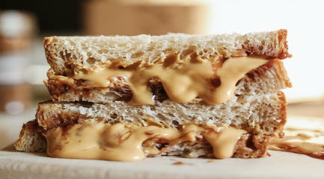
Why Butters Are The Best Way To Consume Protein
Nuts contain a high amount of protein and are a great source of essential nutrients such as omega-3 fatty acid, omega-6 fatty acid, vitamin, and magnesium.
Nut butter can be eaten in different ways. They can be easily purchased in food stores, both online and offline. They are packed with protein and nutrients essential for bodybuilding. They are also quite affordable. Nut butters are a great alternative to expensive fitness supplements.
Consuming carbs and protein before a workout is beneficial since peanut butter is packed with protein and contains some amounts of carb, the form a perfect pre-workout snack to help keep your energy up.
Nut-butters offer one of the best food options for people who wish to increase their intake of proteins. Whether it is used as a bread spread or it is added to other meals, butter is one of the best ways to consume protein. It is one of the easiest ways of getting enough protein with each meal.
Healthy Ways To Incorporate Butters Into Your Diet
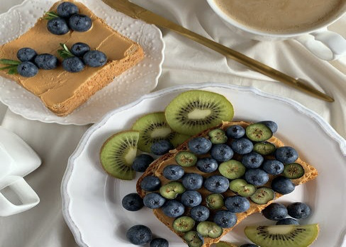
Nut-butters drive lots of sales in the sweet-spread food category. Peanut butter is one of the commonly consumed nut-butters. It has captured the heart and taste buds of many consumers.
A study by Consumer Reports showed that people that are five or more ounces of nuts each week had about 14% lower risk of cardiovascular disease.
However, some people ask, “what are healthy ways to incorporate nut butter into diet?” Below are some creative ideas for incorporating butter into your meals.
- Use as a bread spread
This is one of the most common ways of eating nut jars of butter. It is a great alternative to margarine. Many people enjoy eating bread with nut butter because it is tasty and highly nutritious.
- Mix into breakfast oats
Most nut-butters contain a fairly low amount of sugar but high protein content and will make a good combination with your morning oatmeal. Scooping one or two tablespoons of nut butter into an oatmeal plate can make the meal more savory and filling.
- Add to a smoothie
You can blend in one or two teaspoons of your favorite nut butter into your smoothie to sweeten and thicken it. It is also a good way to incorporate protein into a cup of grounded fruits and veggies.
- Add to a sauce
Having something new on your table can be refreshing. Instead of the traditional pasta sauce, you can blend your nut butter into fresh garlic, lemon juice, pepper, water, and sauce to create a delicious Alfredo-style sauce. You can also blend the butter into fresh tomato sauce to form a creamy sauce.
Best Brands of Nut-Butters for Clean Eating
While natural nut-butters are highly nutritious, it is noteworthy to add that some are made of hydrogenated oils and laden with sugar and other artificial additives. When it comes to purchasing nut-butters, personal preferences play a big role. However, below is a list of some brands that make healthy nut butter if you need suggestions.
- Barney Butter Smooth Almond Butter- The ingredients for this are non-GMO certified, and its palm oil is ethically sourced and health-friendly.
- Sun Butter- This is made from roasted sunflower seeds and contains loads of vitamin E, an antioxidant.
- Nutty Infusions Roasted Almond Butter- Just like its name, this nut butter is made of dry roasted almonds (no additives). It is a good source of fiber, protein, and unsaturated fats.
- Justin’s Vanilla Almond Butter- Have you ever tasted nut butter that tastes like vanilla frosting? This nut butter is made with organic cocoa butter, which is good for the heart.
- Rawmio Chocolate Hazelnut Spread- This nut butter is made with clean ingredients as it doesn’t contain artificial flavors or emulsifiers. It contains a rich chocolate flavor.
- Good and Gather Creamy Almond Butter- This is a great nut butter brand for people who love eating clean as it is unflavoured and unsweetened. Also, it doesn’t contain salts which helps control sodium levels.
Conclusion
Nut butters are great sources of protein and form an excellent food choice for bodybuilders. This is mostly because they are packed with the right nutrients that support bodybuilding. They are readily available, affordable, and can be consumed in different ways. You can never go wrong with this protein source.






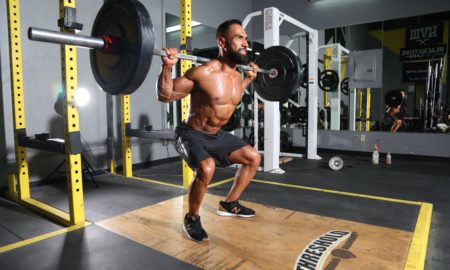










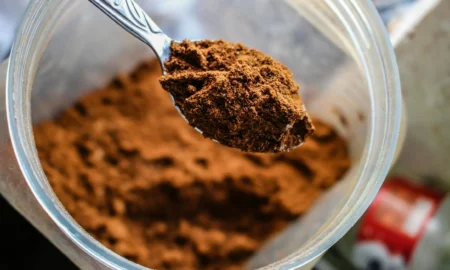




You must be logged in to post a comment Login